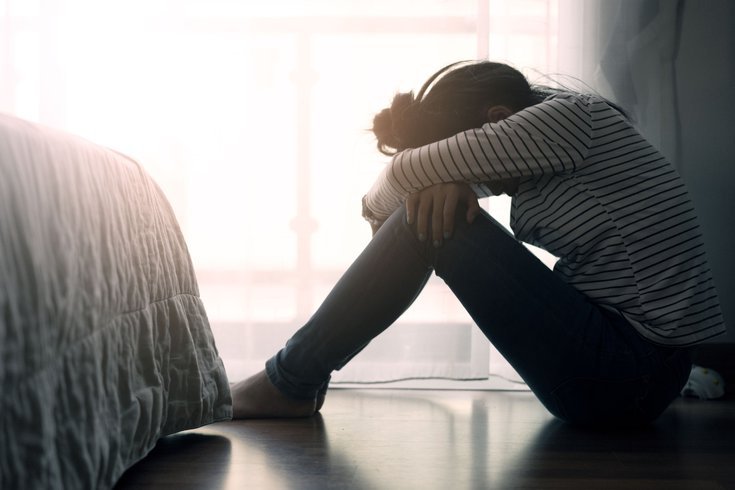
August 15, 2023
 Source/Image licensed from Ingram Image
Source/Image licensed from Ingram Image
LGBTQ youth mental health has worsened following a rise in anti-LGBTQ legislation, according to mental health experts at the University of Pennsylvania.
More than 525 pieces of legislation targeting the LGBTQ community have been introduced by lawmakers across the United States this year, according to the Human Rights Campaign. Experts warn that these policies are taking a toll on LGBTQ youth mental health.
In the Trevor Project's National Survey of LGBTQ Youth Mental Health, nearly one in three young LGBTQ people said their mental health was frequently or always poor due to anti-LGBTQ legislation. Similarly, two in three participants said that legislation focused on restricting discussions of LGBTQ identity in schools adversely impacted their mental health.
In the past year, 41% of LGBTQ youth considered suicide, a rate about twice as high as the general population, according to the survey. These numbers, coupled with an influx of legislative policies regarding access to LGBTQ health care and restrictions on public accommodations, led the HRC to declare a national state of emergency for LGBTQ people this year.
LGBTQ youth already face an elevated risk of depression, anxiety, self-harm and suicide compared to their cisgender and heterosexual peers, according to the American Academy of Pediatrics. Research suggests that mental health challenges among LGBTQ people correlate with factors like parental acceptance, which indicates that discrimination and stigma, not being LGBTQ, leads to these challenges.
"What a couple of decades of research have shown us now is that the single most important factor in a young person's mental health when they're LGBTQ is the extent to which they are exposed to either support and affirmation or rejection and victimization," said Dr. Katharine Dalke, an assistant professor of clinical psychiatry at Penn Medicine. "A young LGBTQ+ person is way more likely to have good mental health if they're in an environment at home, in school, in their community, in their doctors' offices, in the state they live in, where those places accept, affirm, respect and support who they are."
Dalke said that, over the last few years, she has seen a "dramatic increase" in the number of young people — and adults — who are impacted by national conversations surrounding LGBTQ identity and LGBTQ rights. Patients have said they're experiencing more openly homophobic or transphobic comments from people in their communities, much of which is based on misinformation.
People have also told Dalke that they are experiencing more street harassment and threats of violence as they walk through their communities, with others scared that they may lose their jobs, schooling opportunities or health care, even though Pennsylvania protects those things.
Dr. Xavier Diao, a psychiatrist at Penn Medicine, said that he has seen the impacts of anti-LGBTQ legislation on young people in his practice. People already struggling with mental illness have been experiencing worse symptoms in light of political discussions regarding LGBTQ people.
"At the same time, I will say that I've also seen a kind of resilience and cohesion that's come out of this within the community," Dalke said. "We're looking at each other and saying, 'Well, none of these people are going to help us or take care of us. We're going to help and take care of each other.' We're looking to create safe spaces for each other."
Earlier this year, the U.S. Surgeon General issued a warning that social media is a major driver of the youth mental health crisis, impacting their brain development and exposing them to hate-based content. For LGBTQ youth, however, social media can be a lifeline, providing a sense of belonging and a place to explore their identities, the New York Times reported.
Diao said that LGBTQ youth resources on social media have helped people seek mental health care when they need it, though he stresses that they can be disruptive if content hasn't been properly vetted.
Research from the University of Texas at Austin found that LGBTQ youth who had a lot of support from their parents and families experienced fewer depressive symptoms than those who were the recipients of negative "psychological control" from their parents.
That study supports previous research that indicates LGBTQ youth majorly benefit from having support systems, particularly within their families, from a young age.
"Parental support is paramount," Diao said. "I think it's one of the most important factors and predictors of mental well-being in people who are questioning their sexual identity. Familial acceptance is a really strong factor against the development of mental illness, including anxiety and mood disorders as well as substance use disorders. We know that the minority of transgender, nonbinary and gender diverse youth live in homes that are supportive, so I think there's a lot of work to be done."
Diao said that parents and caregivers should listen to their children when they discuss mental health, particularly if they are LGBTQ or questioning their identity. Listening with empathy and holding space for young people experiencing these challenges is a really "profound step." There may be some mistakes in terms of language and terminology among parents, Diao said, but what's most important is being supportive and asking questions.
For those who don't have parental support or who face barriers in access to mental health care, there are resources that can provide support. Community organizations, like local chapters of PFLAG, the Mazzoni Center or the Attic Youth Center, may be able to provide mental health resources or allow youth to make connections within LGBTQ communities. The 988 Suicide and Crisis Lifeline is available 24/7 for people of all ages and sexual orientations to call and text for support.